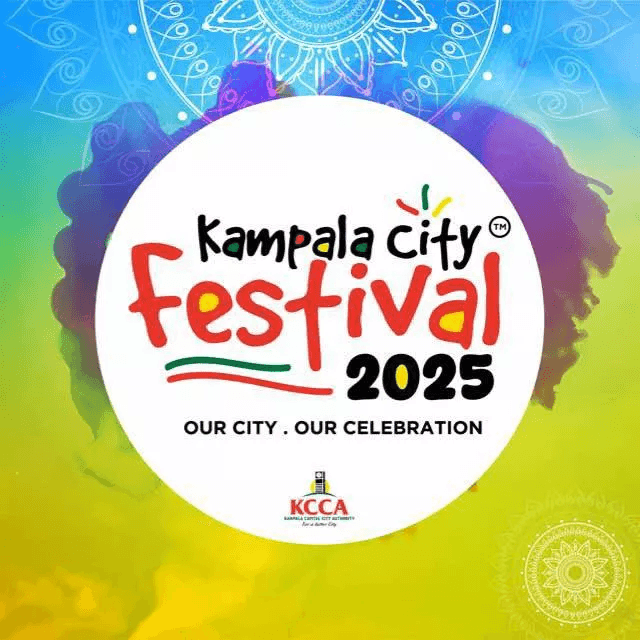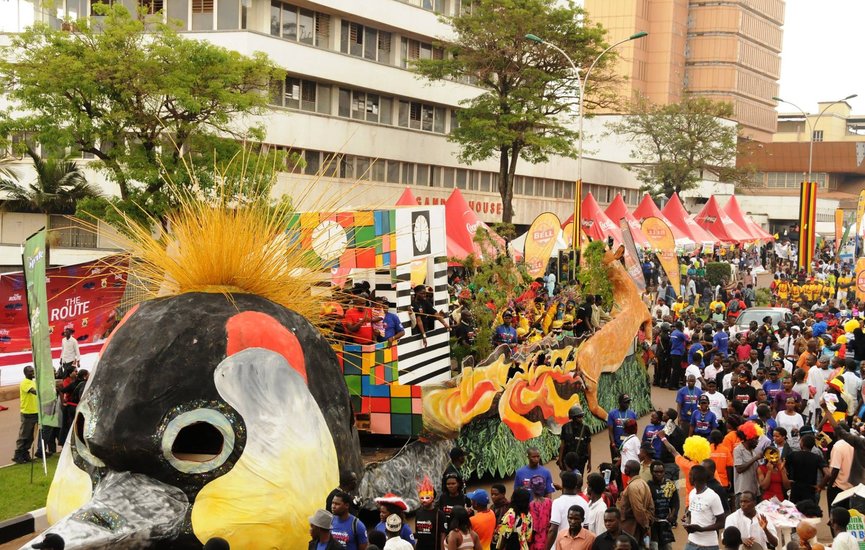KAMPALA, Uganda — In a sweeping update on its performance for the 2024/2025 financial year, the Kampala Capital City Authority (KCCA) unveiled significant milestones in infrastructure, sanitation, and inclusive development while also reigniting civic pride with the return of the Kampala City Festival.
Addressing journalists at the Uganda Media Centre, KCCA Executive Director Sharifah Buzeki described the past year as “a period of bold action, decisive leadership, and unwavering commitment to transforming Kampala into a livable, modern, and inclusive city.”
Among the Authority’s top achievements is the long-awaited effort to overhaul Kampala’s waste management system. With a $1 million grant from the Japanese government via UN-Habitat, KCCA began stabilizing seven acres of the overburdened Kiteezi landfill tackling gas emissions, leachate, and drainage issues head-on. Plans are underway to replace Kiteezi entirely with a state-of-the-art Integrated Waste Management and Resource Recovery Facility in Buyala, Mpigi. Spanning 230 hectares, the site is poised to transform how the capital handles waste.
KCCA has also championed community clean-up efforts, launched sensitization campaigns, and enforced anti-dumping laws. More than 4,000 vulnerable residents were contracted through SACCOs to maintain city cleanliness, all paid promptly by year-end.
The Kampala City Roads Rehabilitation Project (KCRRP) has made visible progress, with over 70 kilometers of roads undergoing upgrades. Roads like Old Mubende and Wamala are nearing completion, while critical bridges such as Kayemba and Nakawa Railway Crossing are already in use. Additionally, 15 roads across all five city divisions are under construction as part of the Greater Kampala Metropolitan Area Urban Development Program (GKMA-UDP). Over UGX 550 billion has been allocated for the reconstruction of 84 kilometers of roads and drainage systems over the next three years.
To ease congestion, KCCA completed 27 traffic signal installations and began replacing key roundabouts. The new Kampala Traffic Control Center at City Hall is set to manage real-time traffic once operational.
Public sanitation has seen a marked boost. KCCA built 59 toilets 33 in schools and 26 in public areas and renovated 14 more. Beneficiaries include markets, police stations, and schools such as Kansanga Primary and Police Children Primary School in Kibuli. In education, upgrades at Kololo SS and Kyambogo College School included asbestos removal. New classroom blocks have been completed at Nakivubo Primary, while plans for Kasubi Family School and Mpererwe P/S are underway. Healthcare hasn’t been left behind. The maternity ward under construction at Kiswa Health Centre exemplifies KCCA’s effort to expand essential services.
Livelihood development took center stage in 2024/25. The newly commissioned Busega Market now accommodates 2,000 vendors. Registration and zoning have been finalized in 16 out of 17 city markets, with Kiseka and Kitintale close behind. Over 600 youths received vocational training at the Kabalagala Youth One-Stop Centre, and more than 5,700 were mentored or placed in apprenticeships. Urban farming initiatives reached 1,142 people. Through the Parish Development Model, UGX 9.8 billion supported 9,065 city residents in 2024/25 alone. In three years, over UGX 29 billion has benefited 28,516 households across Kampala.
KCCA’s commitment to protecting vulnerable populations remained steadfast. Over 200 street-connected children were rescued, while 684 others were supported through reintegration programs in Napak District. Following the August 2024 garbage slide in Kiteezi that displaced 142 households, KCCA initiated compensation and structural assessments, with 18 families already paid.
Environmental restoration gained momentum. More than 8,500 trees were planted across Kampala, supported by the launch of the Urban Forest Management Plan (2023–2029). Beautification of key roads like Nile Avenue and Jinja Road is ongoing, with increased enforcement against illegal green space use. Air quality monitoring systems are being scaled up, with plans to deepen school and private sector partnerships in environmental sustainability.
KCCA surpassed its UGX 120.4 billion revenue target, collecting UGX 127.6 billion in FY 2024/25. More than 29,000 new taxpayers were registered, and 148 community engagements held to promote voluntary compliance. The target for 2025/26 is UGX 132.4 billion.
Looking to FY 2025/26, KCCA’s key priorities include completing Salama, Sir Apollo Kaggwa, Portbell, and Industrial Area roads; operationalizing the Buyala landfill; constructing Ggaba and Usafi markets; expanding climate adaptation and air quality initiatives; upgrading schools and supplying desks to 10 schools; completing the Kiswa maternity ward; and signalizing 22 more traffic junctions.
Buzeki acknowledged persistent challenges chief among them the need for 100 garbage trucks and 10 ambulances, alongside issues like wetland encroachment and illegal dumping. “We will not slow down,” she vowed. “Through partnerships, planning, and collective action, we will build the Kampala we all deserve.”
With Uganda heading into an election year, KCCA has called for civility and responsible conduct in public spaces. Political activity in markets and health facilities is discouraged, and official guidelines on campaign material placement have been issued.
In a moment of renewed civic pride, Buzeki confirmed the return of the Kampala City Festival. A launch event is slated for August 6 at City Hall, with full dates to follow. “This is not just a celebration,” she emphasized. “It’s a reaffirmation of unity, pride, and our shared goal of a clean, modern Kampala.”
KCCA extended its gratitude to President Yoweri Museveni, the Ministry for Kampala Capital City and Metropolitan Affairs, and all partners and staff who contributed to the city’s ongoing transformation.


